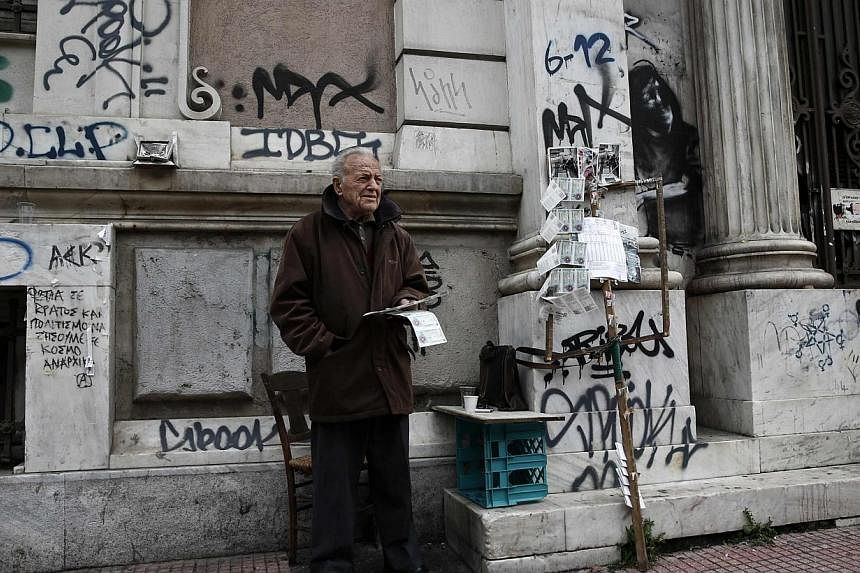ATHENS (AFP) - International creditors on Tuesday pored over a list of reforms proposed by Greece's new anti-austerity government aimed at securing a four-month extension of the country's financial lifeline.
Greece's current bailout programme expires on Saturday. If there is no extension, Greece's government risks running out of money and potentially triggering a run on its banks or even having to leave the eurozone.
The programme, seen by AFP, includes a raft of measures aimed at tackling corruption and improving tax collection, the social security system and government bureaucracy - but without giving figures.
It commits to maintaining privatisations that have already been completed and to improving the business environment, and says that measures to alleviate poverty will have "no negative fiscal effect".
Herewith is a summary:
TAX
The government wants to "work toward creating a new culture of tax compliance to ensure that all sections of society, and especially the well-off, contribute fairly to the financing of public policies".
This will include "robust efforts" to improve tax collection and fight tax evasion, including through better use of technology, reforming value-added tax (VAT) and "modernising" the income tax code.
CORRUPTION
A key policy aim of left-wing Prime Minister Alexis Tsipras, 40, who swept to power last month promising to reverse hated austerity measures, is to tackle corruption.
To this end, the list sent to Brussels talks of implementing a "national plan against corruption".
This will involve cracking down on fuel and tobacco smuggling as well as money laundering, while keeping closer tabs on the funding of political parties and the awarding of public tenders.
To underscore its determination, the government has created an anti-corruption ministry headed by a former prosecutor.
EFFICIENCY
In order to save money the government plans to improve efficiency across the board: in tax collection, the managing of public finances, the social security system and in government bureaucracy.
This will include cutting the number of ministries to 10 from 16, reducing the number of "special advisers" to government and slashing "fringe benefits" of politicians and other top officials like cars and travel expenses.
Spending will be reviewed "in every area of government spending" and cost-savings will be identified through a "thorough spending review". Loopholes allowing "excessive" early retirement will be eliminated.
In addition, the government aims to implement labour market reforms and achieve a "better business environment", including by removing barriers to competition, cutting red tape and opening up regulated professions.
PRIVATISATIONS
The programme commits to maintain privatisations that have already been completed and to "respect the process according to the law" where a tender has already been launched.
But at the same time, the government will review privatisations that have not yet been launched with a view to improving the terms and to "maximise the state's long-term benefits".
'HUMANITARIAN CRISIS'
Calling itself the "National Salvation Government", Tsipras's administration has vowed to tackle high rates of poverty caused by years of recession and austerity cuts in return for two international bailouts.
To tackle this, the list includes measures to improve access to basic needs such as nourishment, health care, housing and energy though "highly targeted non-pecuniary instruments" like food stamps.
Importantly, however, the government claims that its "fight against the humanitarian crisis", as well schemes such as temporary work programmes for the unemployed, will have "no negative fiscal effect".
In the same way, the scope and timing of the government's planned increase in the minimum wage - a measure that particularly alarmed creditors - will be made "in consultation ... with European and international institutions".

